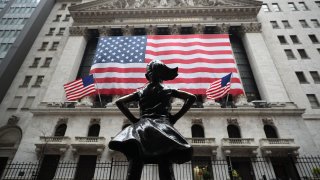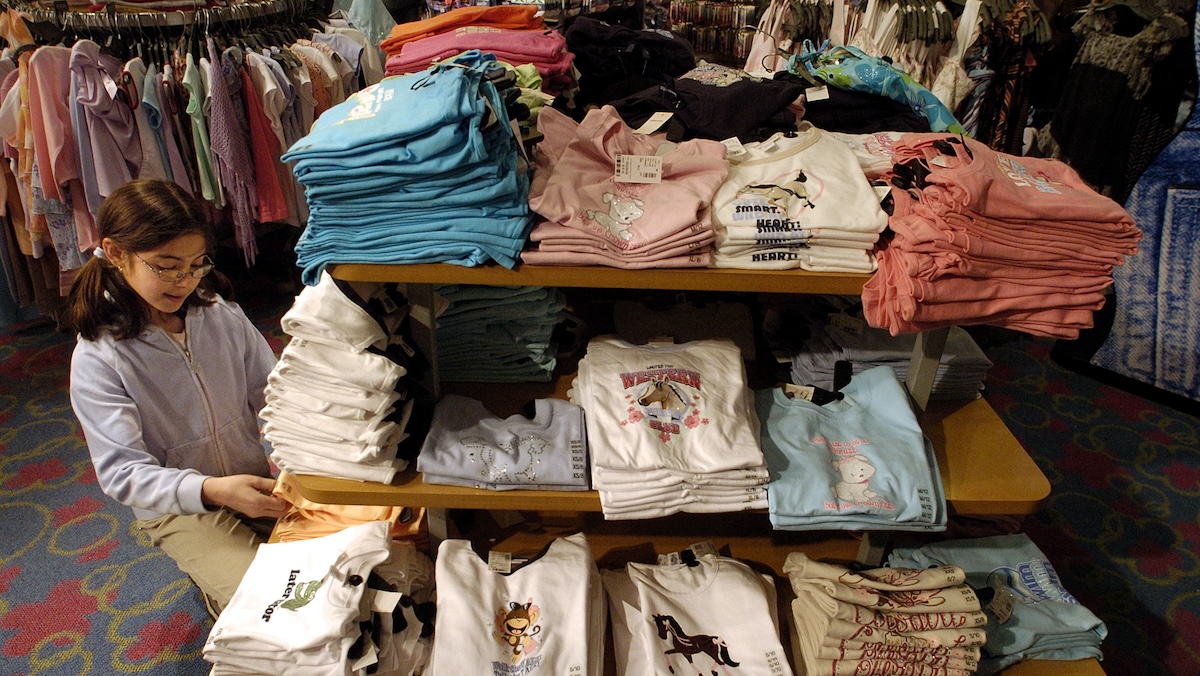
Wall Street doubled down on its bet that the worst of the recession has passed, sending stocks higher again on Friday despite another historic, crushing report on the job market.
Stocks around the world were already rising before the U.S. government gave its monthly report on jobs, in part on hopes that the U.S. and China won’t restart their trade war. After the report showed employers cut a record-busting 20.5 million jobs last month, the gains actually accelerated.
While the number is a nightmare, it was slightly below the 21 million that economists told markets to brace for. More importantly, investors are betting they won’t see another report that bad again because the number of workers filing for unemployment benefits has slowly declined the last five weeks.
Instead of looking backward at last month’s job losses, some investors focused instead on the prospect of growth resuming later this year. They bought stocks of retailers that laid out plans to reopen in coming weeks, energy companies that would benefit as people start driving again and banks that may skirt the worst-case avalanche of loan defaults.
“So, equity investors are looking for that hope in the third and fourth quarter of this year,” said Megan Horneman, director of portfolio strategy at Verdence Capital Advisors. “That’s what this optimism is about.”
The S&P 500 rose 48.61, or 1.7%, to 2,929.80 for its fourth gain in the last five days, and it closed out its first winning week in the last three. The Dow Jones Industrial Average added 455.43, or 1.9%, to 24,331.32, and the Nasdaq composite rose 141.66, or 1.6%, to 9,121.32.
After losing a third of its value in a little more than a month on worries about a severe recession, the S&P 500 has since charged higher to recover more than half its loss. The rally started after the Federal Reserve and Congress pledged trillions of dollars to prop up the economy through the downturn.
Business
More recently, even as horrific data confirmed the recession fears were correct, investors have pushed stocks higher as countries and many U.S. states laid out plans to relax restrictions on businesses meant to slow the spread of the coronavirus outbreak.
Many analysts are skeptical of the rally, though, saying the economy likely won’t recover nearly as vigorously and quickly as the stock market has. Friday’s jobs report showed that the unemployment rate climbed to its highest level since the Great Depression. And if reopening economies lead to a renewed surge in infections, business shutdowns could sweep the world quickly again.
Feeling out of the loop? We'll catch you up on the Chicago news you need to know. Sign up for the weekly Chicago Catch-Up newsletter.
Because most economic reports are so backward looking, Horneman said she is focusing on things like passenger traffic at airports and Open Table restaurant reservations to get a sense of how quickly the economy can recover.
“In some aspects, investors are starting to look at it as the worst is behind us,” said Charlie Ripley, senior investment strategist for Allianz Investment Management.
Companies whose profits are usually most closely tied to the strength of the economy led the market higher. Energy producers in the S&P 500 jumped 4.3% for the biggest gain of the 11 sectors that make up the index. Industrial companies and financial stocks were also stronger than the rest of the market.
The trio were the hardest-hit sectors earlier in the year on worries about the coming recession, which would cause demand for their products to vanish and saddle banks with bad loans.
Smaller stocks also rose more than the rest of the market, an indication that investors expect stronger growth ahead. Small-cap stocks have historically sunk more than their bigger rivals heading into downturns, in part because of their more limited financial strength, but rebounded harder in anticipation of recoveries. Friday’s 3.6% gain for the Russell 2000 was more than double those for big-stock indexes.
Stocks got off to a strong start earlier on Friday after a Chinese state media report said top U.S. and Chinese trade negotiators talked on the phone and are working to implement a trade deal. That helped calm building concerns that tensions between the world’s largest economies may flare up again.
The last thing investors want is another round of punishing tit-for-tat tariffs dragging even more on an economy already sliding into a severe recession.
In another sign of less pessimism in the market, the yield on the 10-year Treasury note rose to 0.68% from 0.63% late Thursday. That yield tends to move with investors’ expectations for the economy and inflation.
Benchmark U.S. crude oil rose $1.19, or 5.1%, to settle at $24.74 a barrel, continuing its strong week and recovering some more of its record-setting losses from earlier in the year. Brent crude oil, the international standard, rose $1.51, or 5.1% to $30.97 a barrel.
In Asia, Hong Kong’s Hang Seng added 1%, and stocks in Shanghai rose 0.8%. South Korea’s Kospi gained 0.9%. In Europe, France’s CAC 40 rose 1.1%, and Germany’s DAX rose 1.3%.
___
AP Business Writer Yuri Kageyama contributed.



